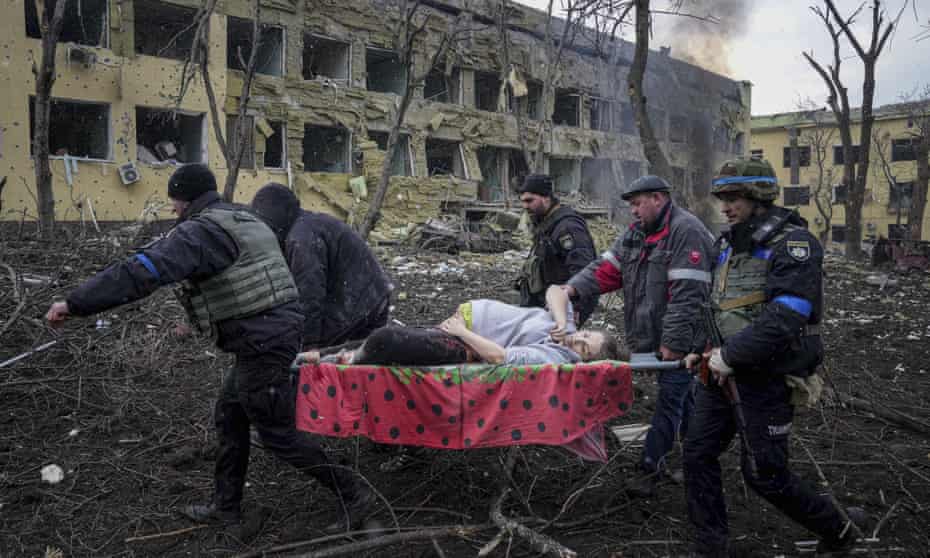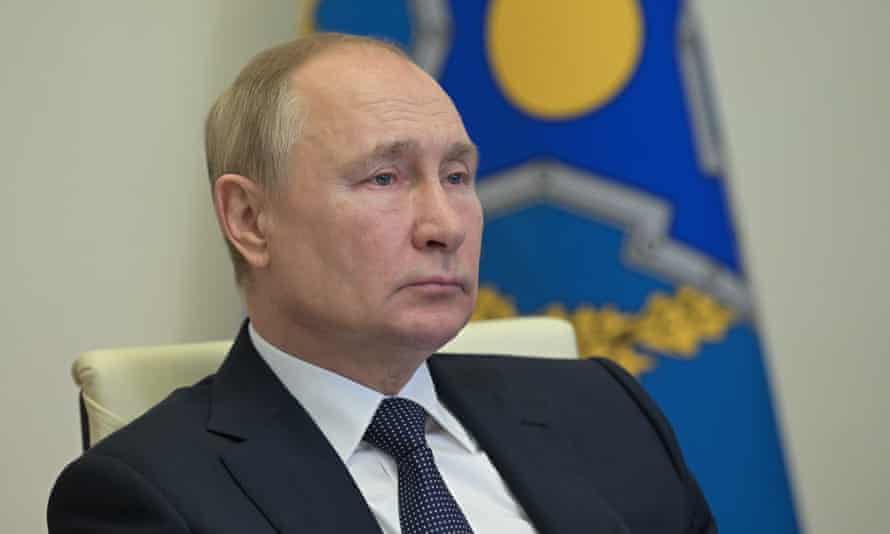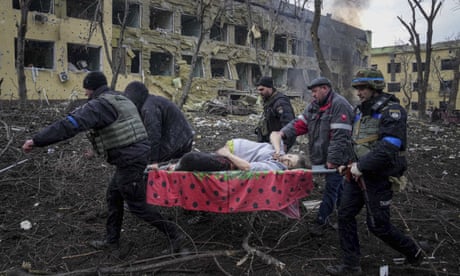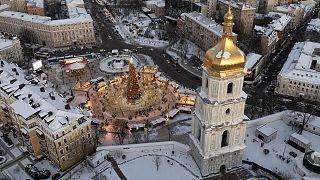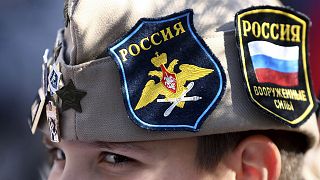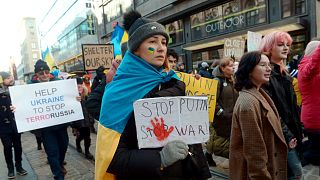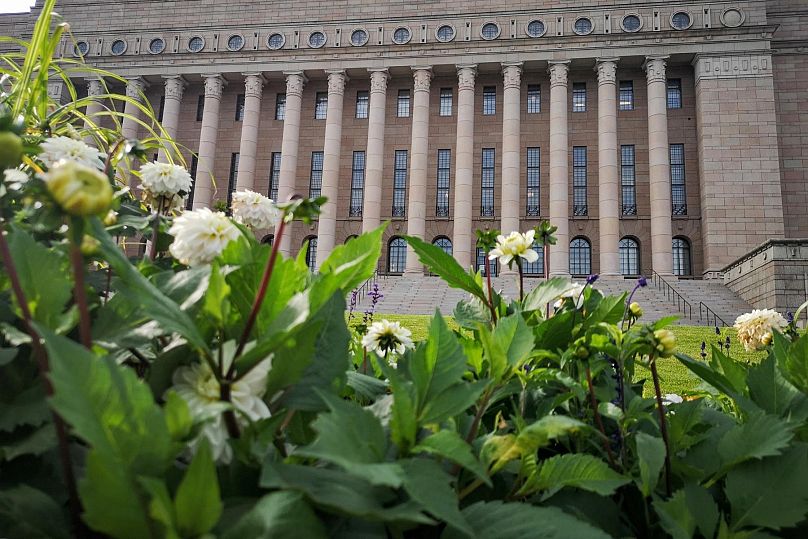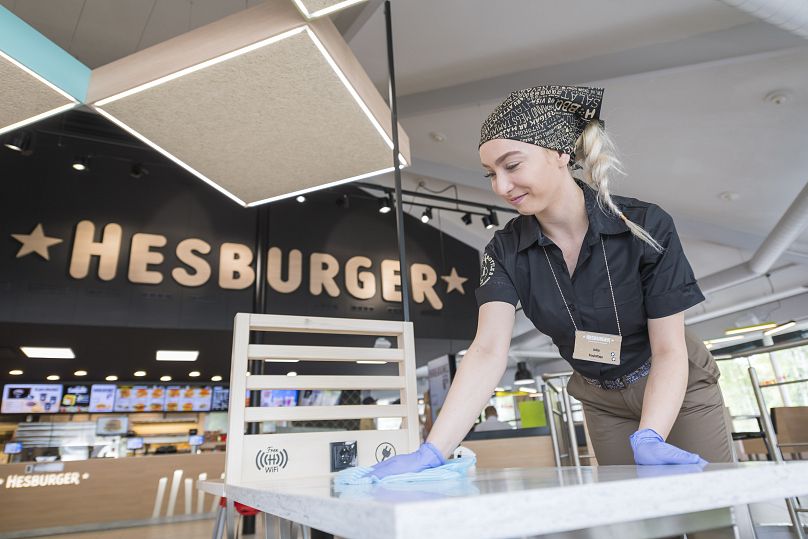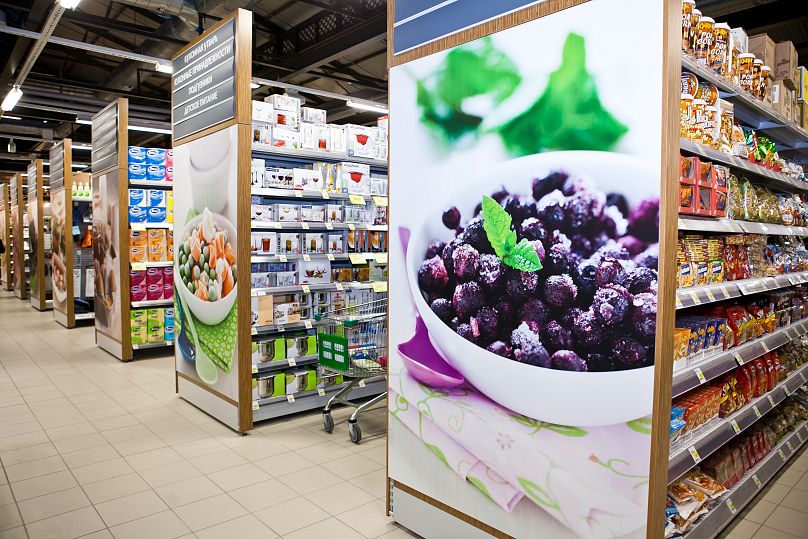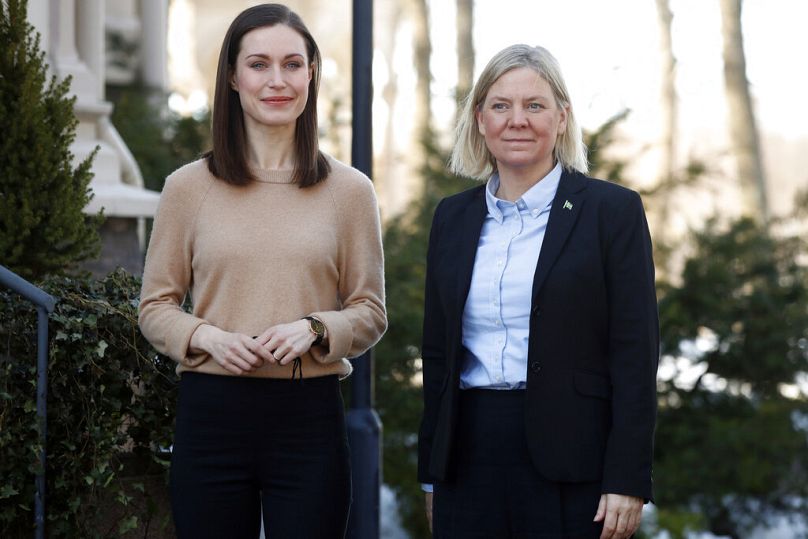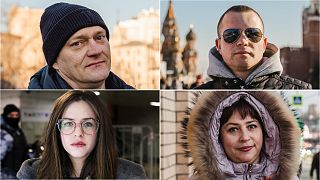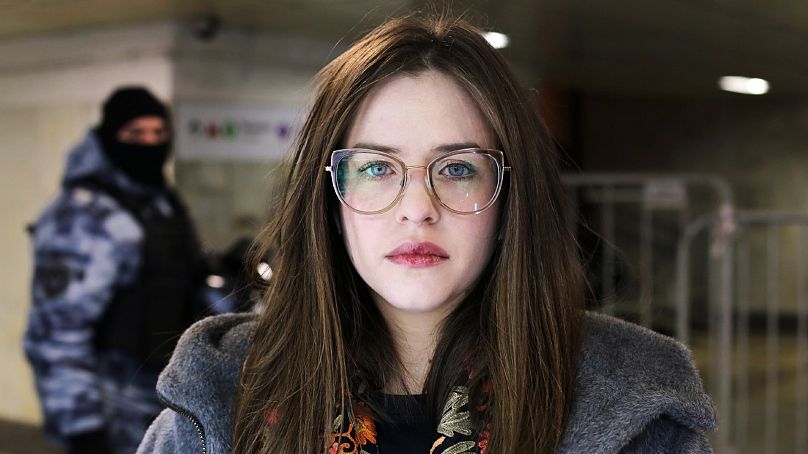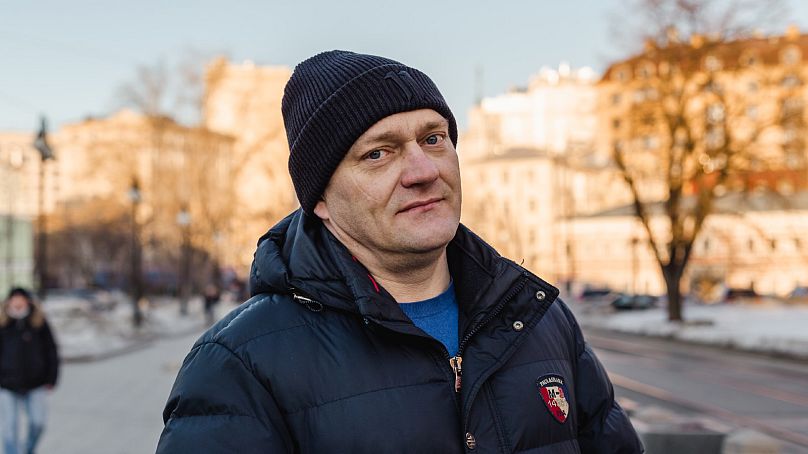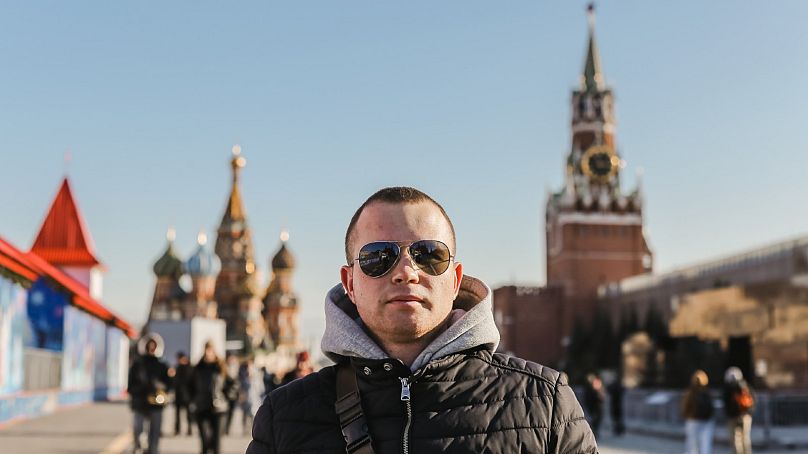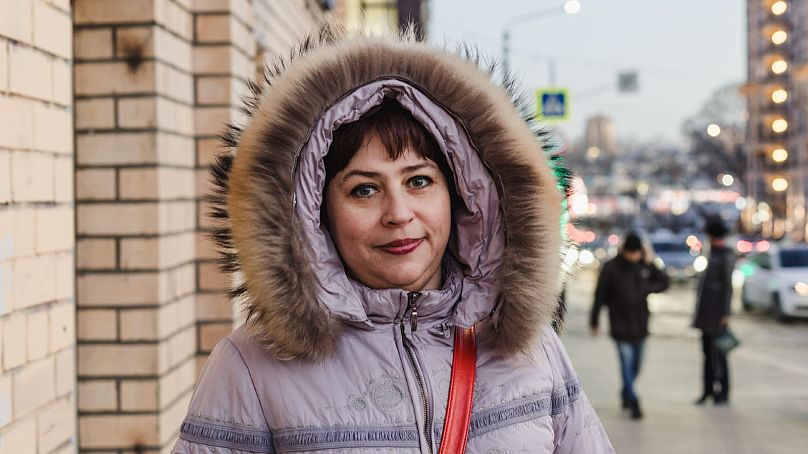By JOSEF FEDERMAN and ILAN BEN ZION

A banner in the colors of Russia's national flag depicting Chelsea soccer club owner Roman Abramovich and reading "the Roman Empire" is shown during the English Premier League soccer match between Chelsea and Newcastle United at Stamford Bridge stadium in London, Sunday, March 13, 2022. (AP Photo/Kirsty Wigglesworth)
JERUSALEM (AP) — Israel is grappling with how to deal with dozens of Jewish Russian oligarchs as Western nations step up sanctions on businesspeople with ties to Russian President Vladimir Putin.
A worried Israeli government has formed a high-level committee to see how the country can maintain its status as a haven for any Jew without running afoul of the biting sanctions targeting Putin’s inner circle.
“Israel will not be a route to bypass sanctions imposed on Russia by the United States and other Western countries,” Foreign Minister Yair Lapid declared Monday during a stop in Slovakia.
Several dozen Jewish tycoons from Russia are believed to have taken on Israeli citizenship or residency in recent years. Many have good working relations with the Kremlin, and at least four -- Chelsea FC owner Roman Abramovich, Mikhail Fridman, Petr Aven and Viktor Vekselberg -- have been sanctioned internationally because of their purported connections to Putin. Some of the sanctions stretch back even to before Russia’s invasion of Ukraine last month.
Israel, which has emerged as an unlikely mediator between Ukraine and Russia, has not joined the sanctions imposed by the U.S., Britain, European Union and others. But as the war in Ukraine drags on, and other names are added to the list, the pressure is increasing.
In an interview with Israel’s Channel 12 TV station over the weekend, the U.S. undersecretary of state for political affairs, Victoria Nuland, called on Israel to join the group of countries that have sanctioned Russia.
“What we are asking among other things is for every democracy around the world to join us in the financial and export control sanctions that we have put on Putin,” she said. “You don’t want to become the last haven for dirty money that’s fueling Putin’s wars.”
Aaron David Miller, a now-retired veteran U.S. diplomat, said on Twitter that Nuland’s comments were the “toughest battering of Israeli policy since crisis began or of any policy in very long while.”
Israel, founded as a haven for Jews in the wake of the Holocaust, grants automatic citizenship to anyone of Jewish descent. Since the disintegration of the Soviet Union 30 years ago, an estimated 1 million Jews from Russia and other former Soviet republics have moved to Israel. In recent years, a growing number of tycoons from the former Soviet Union have joined them.
Some, such as former energy magnate Leonid Nevzlin, came after falling out with Putin. Others appeared to have done so as hedges against trouble abroad.
Abramovich, for instance, took Israeli citizenship in 2018 after his British visa was not renewed, apparently as part of British authorities’ efforts to crack down on Putin associates after a former Russian spy was poisoned in England. Although he appears to spend little time in the country, he has bought some choice real estate, including a home in a trendy Tel Aviv neighborhood reportedly purchased from the husband of Wonder Woman actress Gal Gadot.
Some of the tycoons have kept low public profiles, while others have embraced their Jewish roots, emerging as major philanthropists to Jewish causes or investing in Israel’s high-flying technology sector. With a limited number of places to go, a growing number of Jewish tycoons, especially those with Israeli citizenship, could find themselves spending more time in Israel.
Israeli media have reported private jets belonging to oligarchs coming in and out of the country in recent days. Channel 12 said late Sunday that one of Abramovich’s planes had landed in Israel, though it was unclear if he was onboard. Israeli media reported he was seen at Israel’s Ben Gurion International Airport on Monday, around the same time as his private jet flew to Istanbul.
While Israel weighs its moves, Jewish organizations already are taking a closer look at their relations with Russian oligarchs.
Last week, Yad Vashem, Israel’s national Holocaust memorial, said it was suspending a reported donation of tens millions of dollars from Abramovich “in light of recent developments.” In Ukraine, the Babyn Yar Holocaust Memorial Center, built at the ravine where over 30,000 Jews were massacred in just two days in 1941, said that Fridman, who was born in Ukraine, had resigned from its advisory board due to the sanctions.
Lior Haiat, spokesman for Israel’s Foreign Ministry, said the government has formed a special inter-ministerial committee to study the sanctions issue. The fate of affected oligarchs is a central part of that mission.
On Monday, Lapid said the ministry was working with other government bodies, including Israel’s Central Bank, to make sure tycoons do not use the country to avert sanctions.
Lapid also has advised his colleagues to keep their distance from the oligarchs.
“You have to be very careful because those guys have connections and they can call you on the phone and ask you for things,” Lapid recently told the Cabinet. “Don’t commit to anything because it could cause diplomatic damage. Say you can’t help them and give them the number of the Foreign Ministry.”
His comments, first reported in Israeli media, were confirmed by officials who attended the meeting. They spoke on condition of anonymity because they were discussing closed Cabinet proceedings.
Israel, one of the few countries that has good relations with both Russia and Ukraine, may be able to insulate itself from the international pressure as long as it continues to mediate between the warring sides. Joining the sanctions would risk drawing Russian ire and jeopardize Israel’s unique role.
Ksenia Svetlova, an international-affairs expert and former Israeli lawmaker born in Russia, said Israel would hold out from taking a stance as long as possible.
“It depends on what kind of pressure they will exercise against Israel,” she said. “Not voluntarily, certainly.”


